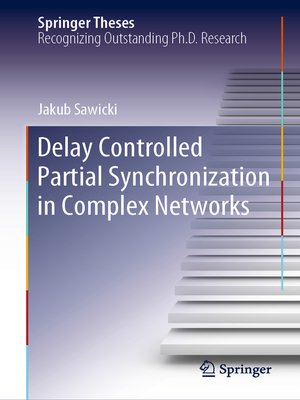Delay Controlled Partial Synchronization in Complex Networks
ebook ∣ Springer Theses
By Jakub Sawicki

Sign up to save your library
With an OverDrive account, you can save your favorite libraries for at-a-glance information about availability. Find out more about OverDrive accounts.
Find this title in Libby, the library reading app by OverDrive.



Search for a digital library with this title
Title found at these libraries:
| Library Name | Distance |
|---|---|
| Loading... |
The focus of this thesis are synchronization phenomena in networks and their intrinsic control through time delay, which is ubiquitous in real-world systems ranging from physics and acoustics to neuroscience and engineering. We encounter synchronization everywhere and it can be either a helpful or a detrimental mechanism. In the first part, after a survey of complex nonlinear systems and networks, we show that a seemingly simple system of two organ pipes gives birth to complex bifurcation and synchronization scenarios. Going from a 2-oscillator system to a ring of oscillators, we encounter the intriguing phenomenon of chimera states which are partial synchrony patterns with coexisting domains of synchronized and desynchronized dynamics. For more than a decade scientist have tried to solve the puzzle of this spontaneous symmetry-breaking emerging in networks of identical elements. We provide an analysis of initial conditions and extend our model by the addition of time delay and fractalconnectivities. In the second part, we investigate partial synchronization patterns in a neuronal network and explain dynamical asymmetry arising from the hemispheric structure of the human brain. A particular focus is on the novel scenario of partial relay synchronization in multiplex networks. Such networks allow for synchronization of the coherent domains of chimera states via a remote layer, whereas the incoherent domains remain desynchronized. The theoretical framework is demonstrated with different generic models.







